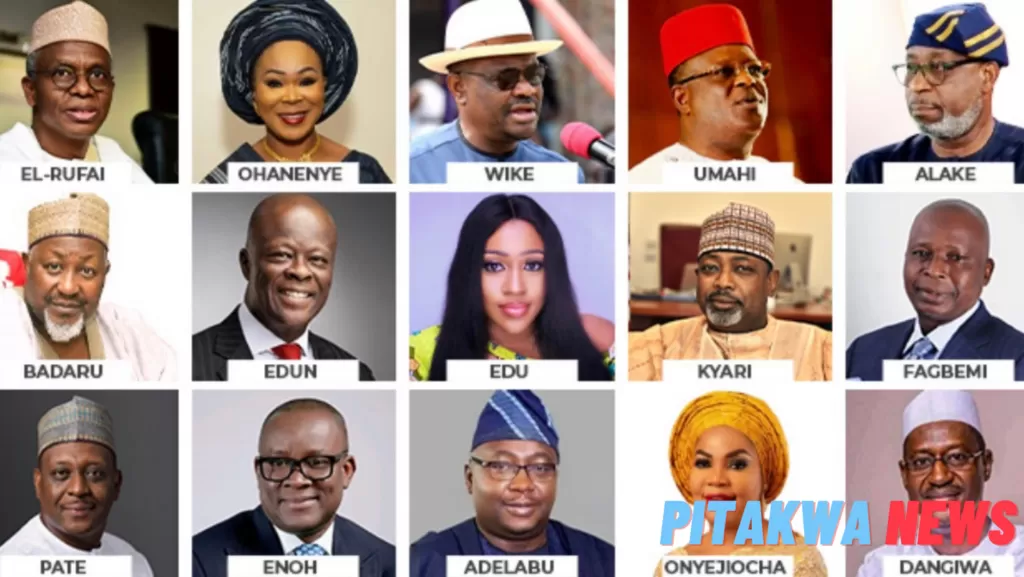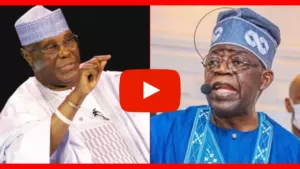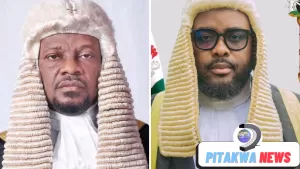All Set For Senate Screening Of Tinubu’s Ministerial Nominees Today

20 of the 28 ministerial nominees have completed their documentation for the screening at the Senate today (Monday).
Those yet to complete their documentation, it was gathered, are currently out of the country.
About 24 hours after the Senate unveiled the President’s first batch of ministerial list on Thursday, July 27, 2023, the Senior Special Assistant to the President on National Assembly Matters (Senate), Abdullahi Gumel, asked the ministerial nominees to complete their documentation ahead of screening, which commences today (Monday).
Tinubu To Address Nigerians 7pm Today
The Chief of Staff to the President, Femi Gbajabiamila, presented Tinubu’s ministerial list before the Senate after a long wait by Nigerians.
Gbajabiamila, the immediate past Speaker of the House of the Representatives, presented the list to Senate President Godswill Akpabio at exactly 01:19pm.
Section 147 (3) of the 1999 Constitution mandates the President to appoint at least one minister from each of the 36 states. However, 11 states – Adamawa, Bayelsa, Gombe, Kano, Kebbi, Kogi, Lagos, Osun, Yobe, Plateau and Zamfara — and the Federal Capital Territory don’t have ministerial nominees yet.
In his letter to the Senate titled, ‘Request For Confirmation Of Ministerial-Nominees’, the President said supplementary ministerial list would be sent to the red chamber in due course.
Tinubu’s first set of nominations was overshadowed by politicians including ex-governors, serving and former members of the Senate and House of Representatives.
Significantly, four ex-governors made the list. They are Nyesom Wike (Rivers), Dave Umahi (Ebonyi); Nasir El Rufai (Kaduna); and Abubakar Badaru (Jigawa).
Presidential spokesman, Dele Alake; acting National Chairman of the ruling All Progressives Congress (APC), Abubakar Kyari; Senior Advocate of Nigeria, Lateef Fagbemi; also made the list.
Twenty-five per cent of the nominees are women while 75% are men. The women are Betta Edu, Doris Aniche Uzoka, Hannatu Musawa, Nkiru Onyeojiocha, Stella Okotete, Nkiru Onyeojiocha, Uju Kennedy Ohaneye, and Iman Suleiman Ibrahim.
Many analysts had attributed the slow take-off of the Muhammadu Buhari administration to his late announcement of ministers. Buhari, who handed over to Tinubu after eight years, unveiled his cabinet six months after his inauguration in 2015.
However, Tinubu transmitted his ministerial list to the National Assembly a day before the expiration of his 60-day constitutional deadline of July 28, 2023.
Moreover, the Fifth Amendment to the 1999 Constitution mandates the President to transmit the names of his ministerial nominees to the National Assembly within 60 days of assumption of office.
Below is a breakdown of the 28 ministerial nominees according to the geo-political zones:
North-East
Yusuf Maitama Tuggar – Bauchi
Ali Pate –Bauchi
Abubakar Kyari – Borno
Sani Abubakar Danladi – Taraba
North-West
Badaru Abubakar – Jigawa
Nasiru Ahmed El-Rufai – Kaduna
Ahmed Dangiwa – Katsina
Hannatu Musawa – Katsina
Bello Muhammad Goronyo – Sokoto
North Central
Lateef Fagbemi – Kwara
Muhammad Idris – Niger
Iman Suleiman Ibrahim – Nasarawa
Joseph Utsev – Benue
South-West
Olubunmi Tunji Ojo – Ondo
Dele Alake – Ekiti
Olawale Edun – Ogun
Waheed Adebayo Adelabu – Oyo
South-South
Nyesom Wike – Rivers
Abubakar Momoh – Edo
Betta Edu – Cross River
Ekperikpe Ekpo – Akwa Ibom
Stella Okotette – Delta
John Enoh – Cross River
South-East
Uche Nnaji – Enugu
Doris Aniche Uzoka – Imo
David Umahi – Ebonyi
Nkeiruka Onyejocha – Abia
Uju Kennedy Ohaneye – Anambra







